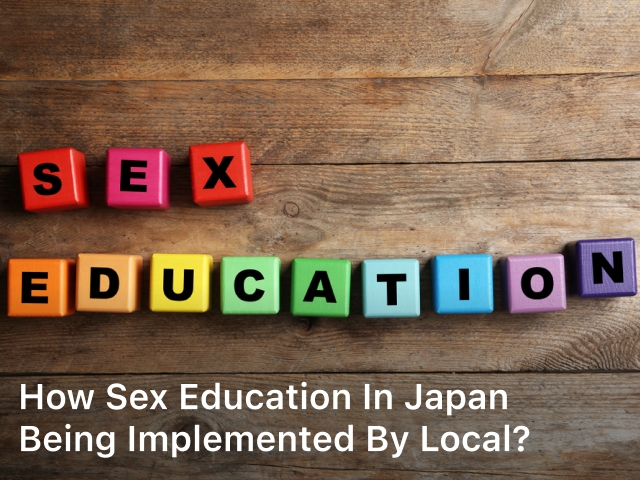How Sex Education in Japan Being Implemented by Local?

fitguideguru.com. How Sex Education in Japan Being Implemented by Local? – Learn about the strategies and approaches used by local authorities for implementing sex education in Japan. Explore the cultural context, challenges, and positive outcomes surrounding sex education in Japanese schools.
In a rapidly evolving world, discussing sex education has become more important than ever. As cultures differ significantly, the approach to sex education varies across countries.
In Japan, a nation with a rich cultural heritage and distinct societal norms, the implementation of sex education is a complex and sensitive topic.
This article delves into how sex education is being implemented by local authorities in Japan, considering both the challenges and successes in this endeavor.
Sex education is a vital component of a comprehensive education system, as it equips students with knowledge about reproductive health, relationships, consent, and personal well-being.
In Japan, the implementation of sex education at the local level reflects the delicate balance between traditional values and modern concerns. Local authorities play a pivotal role in designing and executing sex education programs that align with cultural sensitivities and contemporary requirements.
How Sex Education in Japan is Being Implemented by Local
Cultural Sensitivity and Customization
Sex education in Japan is approached with cultural sensitivity, acknowledging the nation’s deep-rooted traditions and societal values. Local authorities recognize the importance of tailoring the curriculum to address local norms and beliefs.
By customizing the content, educators can ensure that students receive information that is relevant, relatable, and respectful of cultural contexts. This approach fosters better understanding and acceptance among students, families, and communities.
Collaboration with Educators and Parents
One of the key strategies employed by local authorities is collaboration between educators and parents. Open communication channels are established to involve parents in shaping the sex education curriculum.
Workshops, seminars, and informational sessions are organized to address parental concerns and provide them with insights into the curriculum’s content. This collaboration instills a sense of ownership and ensures that the curriculum reflects a collective effort.

Comprehensive Curriculum Design
Local authorities in Japan design comprehensive sex education curricula that cover a wide range of topics. These curricula are structured to provide age-appropriate information, ensuring that students receive knowledge that corresponds to their developmental stages.
From anatomy and reproduction to healthy relationships and consent, the curriculum addresses diverse aspects of sexual health and well-being.
Focus on Emotional and Mental Well-being
Sex education in Japan not only emphasizes the physical aspects of reproductive health but also places a strong focus on emotional and mental well-being. Local authorities recognize that students need guidance in navigating emotions, relationships, and self-identity.
By integrating discussions on emotional resilience, self-esteem, and mental health, the curriculum promotes holistic growth among students.
Professional Development for Educators
Local authorities invest in the professional development of educators to ensure that they are equipped with the necessary skills and knowledge to deliver effective sex education.
Workshops and training sessions are conducted to empower educators with accurate information, teaching methodologies, and communication strategies. This investment enhances the educators’ confidence in addressing sensitive topics and responding to students’ queries.
Integration of Technology and Media
To engage today’s tech-savvy students, local authorities integrate technology and media into sex education programs. Interactive online platforms, informative videos, and engaging podcasts are used to deliver educational content. This approach caters to diverse learning styles, making the learning experience more dynamic and accessible.
Addressing Gender and Identity
Recognizing the importance of inclusivity, sex education in Japan addresses issues related to gender and identity. The curriculum provides information about LGBTQ+ topics, gender diversity, and respect for different identities.
By fostering an inclusive environment, local authorities promote understanding and acceptance among students, contributing to a more tolerant society.
Challenges Faced by Local Authorities
Implementing sex education in Japan is not without challenges. The conservative nature of some communities, cultural taboos, and resistance from certain segments of society can hinder the progress of comprehensive sex education programs.
Local authorities must delicately navigate these challenges while staying committed to their goal of providing accurate and essential information to students.
FAQs
What is the legal status of sex education in Japan?
Sex education is not mandatory in Japan and is not uniformly regulated across the nation. The decision to implement sex education is left to individual local authorities and schools.
How do local authorities overcome cultural resistance to sex education?
Local authorities work on building trust within communities by involving parents, conducting awareness campaigns, and highlighting the importance of informed decision-making for students’ well-being.
Is the curriculum standardized across different regions of Japan?
No, sex education curricula can vary from region to region based on local values and beliefs. However, there are certain overarching themes that tend to be consistent.
Are teachers trained to address sensitive topics in sex education?
Yes, local authorities offer professional development opportunities for educators to equip them with the skills and confidence to discuss sensitive topics with students in a respectful and informative manner.
How does Japan’s aging population impact sex education?
Japan’s aging population has led to concerns about reproductive health and the declining birth rate. These issues underscore the importance of comprehensive and accurate sex education for young people.
What role do cultural norms play in shaping sex education content?
Cultural norms influence the content and approach of sex education. Local authorities strive to strike a balance between modern perspectives and traditional values.
Conclusion
The implementation of sex education in Japan by local authorities reflects a delicate balance between respecting cultural traditions and addressing contemporary needs.
Through cultural sensitivity, collaboration, and comprehensive curriculum design, local authorities aim to equip students with the knowledge they need to make informed decisions about their sexual and emotional well-being. While challenges persist, the commitment of local authorities to provide holistic education underscores the significance of sex education in Japanese society.





